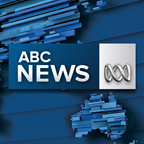
Posted
On a hot January day in 1998, a 25-year-old woman gave birth to identical twin girls in a Sydney hospital: Sara and Kristen.
But the joy was immediately replaced by fear, as the doctors saw that Sara's leg was at an unnatural angle and she had a hole in her spine — the tell-tale signs of spina bifida.
Just days later, Kristen was diagnosed with a heart defect.
Her heart was three sizes larger than average and had two large holes. Both girls required surgery shortly after birth.
"It was fairly obvious at birth that we were different, particularly with Sara, as she was born with her leg over her head and a hole in her spine. The doctors saw and started crying," Kristen said.
The girls were given a unique diagnosis: they were 'semi-identical' twins. Identical, but born with separate health conditions.
"They said that Sara was never going to walk, [that] she would probably never walk," Kristen said.
"All these things [were said] pretty much the day after we were born."
The path to success
 Photo:
Sara and Kristen were happy children but at school they both experienced bullying. (Supplied: Sara Tait)
Photo:
Sara and Kristen were happy children but at school they both experienced bullying. (Supplied: Sara Tait)
But the Tait family disregarded this advice. As the children grew, they were encouraged by their parents to take on new challenges.
As kids, their respective health conditions couldn't keep them from playing.
"All the things people think Sara can't do because she's in a wheelchair, we'd just do," Kristen said.
"Growing up, we were always around our cousins. We'd be like, 'We want to climb trees, so how can we get Sara up a tree?'"
"I think that's what made it harder making friends," Sara said.
"They had a fear factor of, 'She's different so I'm going to assume what she can and can't do' but with Kristen she was assuming she could do anything."
Having each other's backs
The real trouble began for the Tait twins when they started school.
"I was a really happy kid until I went to school," Sara said.
"That's when it solidified for me that I was different because no-one else was in a chair.
"The kids were horrible. I had people punching me in the back and then running away, people threatening to push me down the stairs. As I got older, it got more sneaky — people just trying to exclude you."
But, said Sara, the sisters had each other's backs.
"The good thing was that we always had each other," Sara said.
"We would always stand up for each other, and we were never alone. We had to learn from a young age that we were a strong unit that no-one could break."
With sport comes salvation
It was sport — and the attitude of their parents — that helped the twins regain confidence as teenagers on the Gold Coast.
"Our dad is very sporty," Kristen said.
"He was determined to make a sports star out of one of us. He would adapt sports so we could both play."
It would pay off. Sara is an Australian para-triathlete and has also represented the country in basketball and wheelchair racing.
Kristen played beach volleyball in the United States, but was forced to give up the sport because she overheats easily.
Dad David still supports Sara at all her race days and helps coach her.
"He's her biggest fan," Kristen said.
"They [our parents] have been absolutely incredible. Basically they were told that Sara wouldn't be able to use her legs … Mum wouldn't accept that.
 Photo:
Sara Tait competed in the para-triathlon on the Gold Coast in the 2018 Commonwealth Games. (Supplied: Sara Tait)
Photo:
Sara Tait competed in the para-triathlon on the Gold Coast in the 2018 Commonwealth Games. (Supplied: Sara Tait)
"When Sara was younger, Mum made a harness from a rock-climbing harness that hung from the ceiling.
"She would put Sara in that so she was dangling above a treadmill and Mum would physically walk her feet along the treadmill really slowly to get that movement, that muscle memory.
"Eventually Sara was able to do that by herself and walk with crutches, which they never thought she would be able to do."
Shaping their future
Sara and Kristen, now 21, are both studying at Griffith University on the Gold Coast and they're doing the same degree: a Bachelor of Digital Media.
They attend lectures and exams together … and the idea of launching their own business together after graduation is also on the cards.
Sara said that while her father helped with the sports training, her mum was there for everyday functionality and emotional support.
"She's been our rock," she said. "They both have really."
"I don't know what we would've done without Mum and Dad growing up.
"I think we just hate people telling us what we can and cannot do.
"I will decide that for myself."
Topics: disabilities, sport, bullying, regional, volleyball, paralympics, women, surfers-paradise-4217































